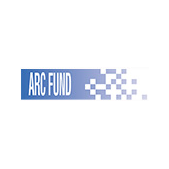CASI is about to publish the 9th EU Policy brief titled: Is Sharing economy a new disruptive service model provider and challenge for which Europe is unready for? As common the concept of sharing can be, the sharing economy context is not easy to define.
The reason why this topic has been chosen is due to the fact that in 2015 a significant number of newspaper headlines were addressing the impact of appearance of sharing economy companies such as Uber and Airbnb. The competition of such service providers towards the current, traditional oriented, was highly criticized and agonised by the latter. The empowerment of ordinary people, the way of how efficiency, services and products are valued and to which extent the ecological impact is achieved has led to ongoing fierce regulatory and political battles. Without a doubt, there are a number of issues to be tackled and the European Commission together with the Member States shall continue on the issue of how to enable the sharing economy ecosystem within the existing regulatory framework. Closely related to that issue is the questions whether there is space for new, “light legislation” that could be endorsed effectively in a relatively short period of time. This is possible if the European perception of the sharing economy is in lieu of embracing this novel concept, the new technologies and its platforms within the peer-to-peer economy context for a strengthening of social inclusion centred on genuine practices of sharing and cooperation in the production and consumption of goods and services. Sharing economy could be an answer to continuously raising unemployment and integration of emigrants as we witness that that current value chains do not comply with the needs and challenges Europe is encountering.
Why to share?
Social platforms such as Facebook, LinkedIn, Twitter and other already changed the way we interact, share information and communicate. Platforms such as eBay and Amazon changed the way we purchase as well as our orientation towards value of price versus products, exchange and sharing of information during the process. Airbnb and Uber changed the way we travel and accommodate ourselves. The above noted are only a few examples of the most known platforms, even though a number of them deserve to be noted. These examples give a sense of change, type of interaction and sharing. The economic crisis has shaken the European economies. The majority of countries are still recovering. This in particular applies for the SMEs sector, which is still suffering the most. High unemployment rates versus today’s numerous challenges, from economical to ecological and other, asks for disruptive models of doing business and acting in a different way, through sharing and building actions on already existent foundations, locally embedded, ecologically sustainable economy.
Outstanding issues observed
Even though there is an enormous potential in the sharing economy model, there are outstanding aspects in parallel, which call for further observations, dialogue and identifying of solutions. Even in the United States, the crib of the sharing economy, many outstanding issues are as common as they are in Europe. Starting with labour issues, the sharing economy offers a more “democratised and open model” towards employment and all traditional values connected with it, however, is the social employment model as fair towards its employees in terms of money gained and the social protection? Is labour supported or exploited? Is the sharing economy turning companies into micro entrepreneurship spheres? Are sharing economy companies for or non-profit? The example of Uber, which attracted venture capitals on board and imposed fierce competition shows that this type of models can be capitalized that at the same time is imposing a questions where to draw the line when sharing company models are in questions? If such companies grow, the demand and supply side of the value chain will amend accordingly. From the point of making positive ecological footprints, how to measure it and prevent that increase of usage of sharing economy services does not lead towards negative ecological trends? What type of funding is obsolete for this model? Shall venture capitalist and business angels be more encouraged to back it up? How to combine the traditional business models with the sharing economy models so that latter is not looked from the perspective of a threat, which would lead towards continuous antagonising of its actors?
In order to find out about CASI's view on the above noted questions as well as to get more insights about the sharing economy, stay tuned for the incoming 9th EU Policy brief!
Relevant themes:
Public participation, Sustainable innovation, Resource efficiency, Environment, Climate action
Relevant tags: Social innovation, Technological innovation, Sustainability, Eco-innovation, Circular economy
























